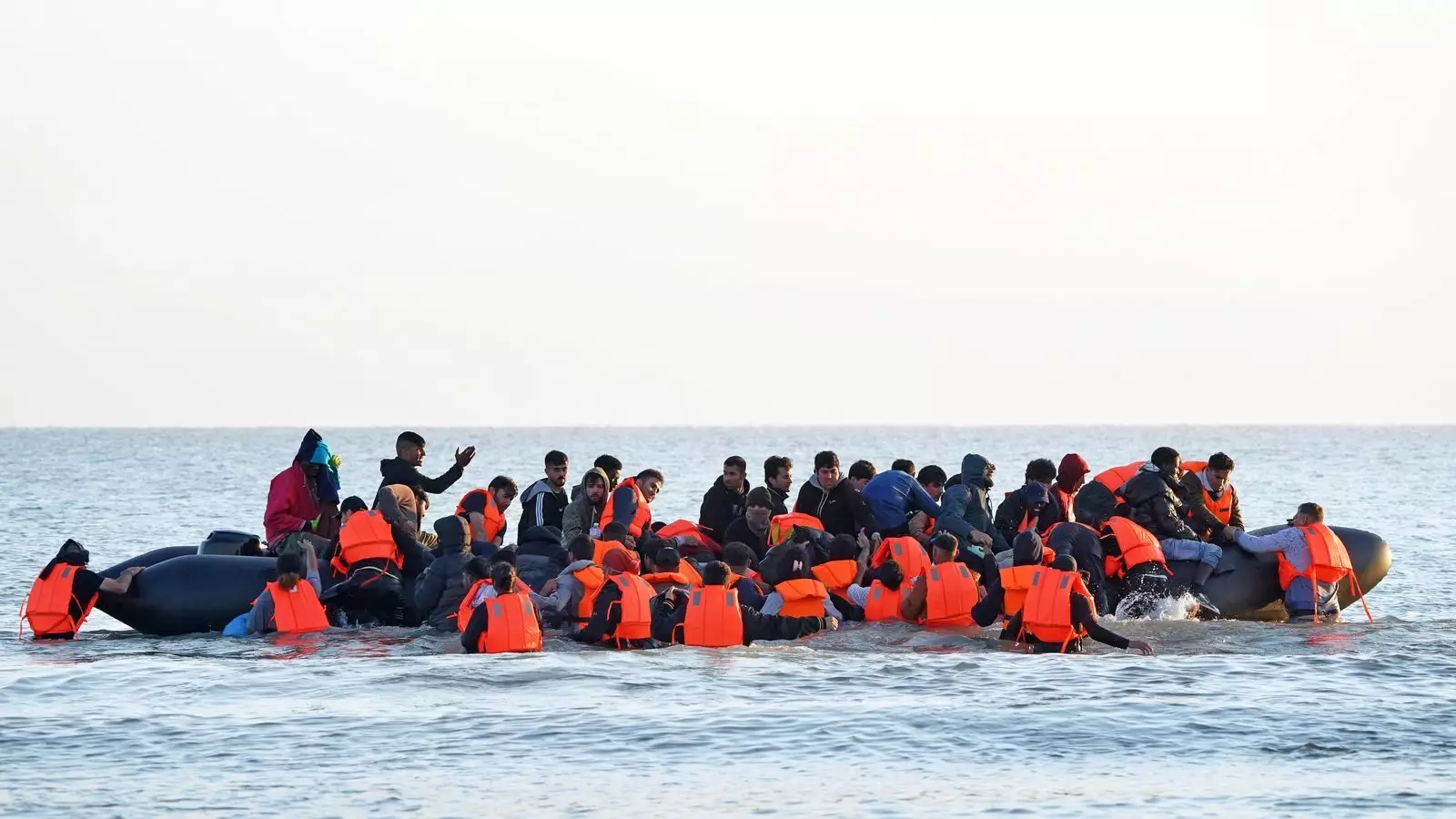As of 2024, the issue of migration across the English Channel has intensified, with provisional government figures revealing that 36,816 individuals undertook the perilous journey to the UK, marking a significant 25% increase compared to 2023’s figure of 29,437. This upward trend signifies that the Channel remains a focal point in the migration discourse, albeit still below the alarming record of 45,774 arrivals in 2022. The statistics paint a complex picture, indicative of both hope and peril for those seeking refuge in England.
Examining the historical data reveals a dramatic escalation in arrivals since 2018, when only 299 people crossed the Channel. The number surged in subsequent years, with notable spikes of 1,843 in 2019, 8,466 in 2020, and a leap to 28,526 in 2021. Such figures indicate not merely an increase in migration attempts but possibly reflect the dire conditions many migrants face in their home countries. Understanding the reasons behind this migration—war, persecution, and economic instability—can provide crucial insights into the ongoing crisis.
Tragically, the migration journey is fraught with danger, as illustrated by the unreported yet dire consequences on human lives. Although no official data from the Home Office published the specific number of fatalities for 2024, the French coastguard reported that at least 53 individuals perished during their attempts. This marks 2024 as the deadliest year for Channel crossings, underscoring the extreme peril associated with these crossings and the indifference of human traffickers who prioritize profit over safety. The implications of these fatalities are profound, raising ethical questions regarding immigration policies and the responsibilities of governments to protect vulnerable populations.
While some groups, such as individuals fleeing war-torn areas like Ukraine and Afghanistan, have legal avenues to resettle in the UK, many refugees must resort to illicit means to arrive. The complexities surrounding immigration law create a stark divide between those who can secure safe passage and those who cannot. Currently, only recognized refugees and close family members of recognized refugees can apply for legal residency in the UK, leaving a significant gap for those without such connections or recognition.
Both major political parties in the UK have pledged to address the rising challenge of Channel crossings, with promises to disrupt smuggling operations that exploit vulnerable populations. The term “smash the gangs” highlights the urgency of the situation but also begs the question of whether such proposals, when implemented, will be effective or merely symbolic gestures. As policies evolve to tackle this crisis, it is crucial for lawmakers to consider humane and ethical approaches that prioritize safety and legality while addressing the root causes of forced migration.
The ever-increasing number of Channel crossings represents a complex interplay of desperation, danger, and policy challenges. As the situation unfolds, it compels us to urgently reconsider our approaches to migration, emphasizing compassion, safety, and a commitment to human rights.


Leave a Reply